Part one of five / Zürich
Transform
The way we work has transformed in the past two years. In the first of five stories, the Adecco Group’s Innovation Foundation invited diverse thinkers to discuss the Great Resignation over dinner and to imagine how women can be helped to re-enter the workforce after taking time out.
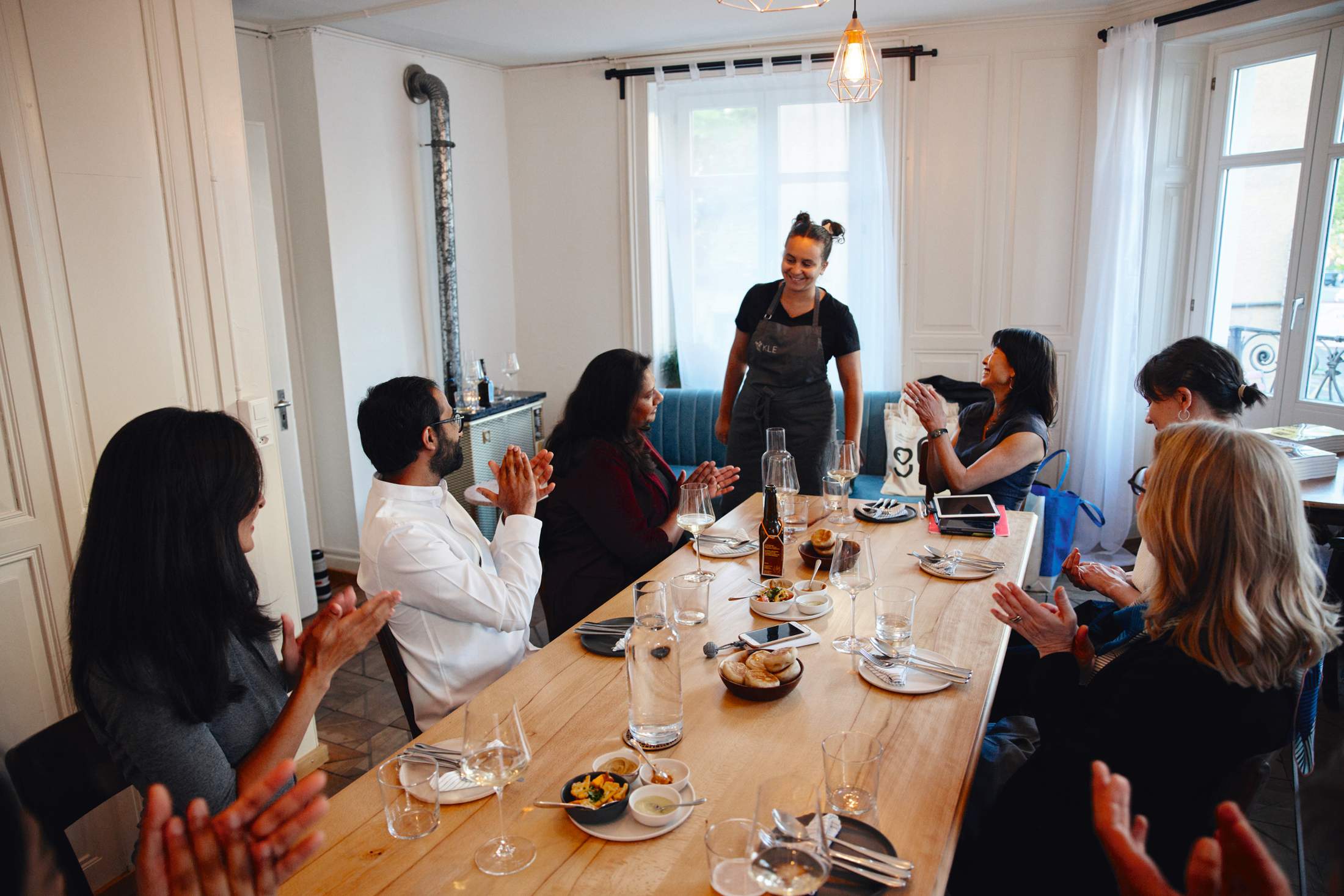
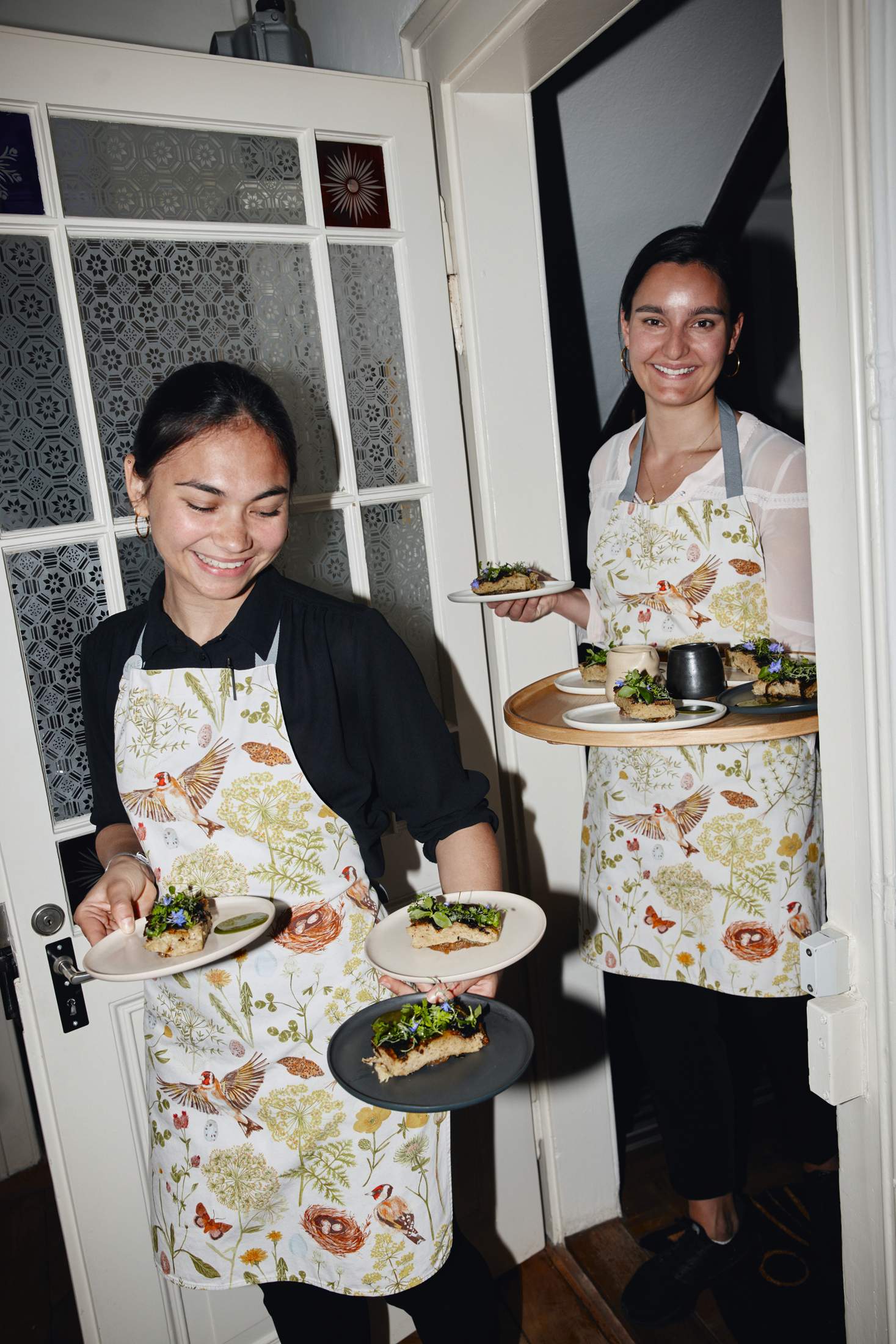
THE MENU
First course
Corn tostada with hazelnut butter and marinated beetroot
Second course
White asparagus with cashew crème fraîche
Third course
Corn tamale with a herb sauce and roast onion reduction
Dessert
Lemon meringue tart
To drink
For the apero: Weingut Adank Blanc de Noir
Red: Domaine Trapet, Gebrey-Chambertin
White: Sébastien Riffault, Akméniné Sancerre
THE VENUE
Zineb “Zizi” Hattab’s vegan restaurant Kle is a cosy eatery in Zürich’s District 3, boasting a refined plant-based menu that mixes influences from Morocco and Spain.
Zweierstrasse 114, 8003 Zürich
restaurantkle.com
THE SPEAKERS
The host
Cynthia Hansen
Managing Director, Innovation Foundation
A specialist in strategy and social impact, Cynthia leads the Innovation Foundation (the corporate foundation of the Adecco Group) as a social innovation lab on the future of work.
innovationfoundation.net
Suba Umathevan
CEO, Drosos Foundation
Umathevan runs the show at the Drosos Foundation, an organisation that aims to unlock the potential of young people in the Middle East and North Africa as well as Germany and Switzerland.
Omar Bawa
CEO, Goodwall
In 2012, Omar co-founded Goodwall, an online platform that helps young people find professional opportunities, jobs and scholarships. It now has two million members.
Nazrene Mannie
Executive director, Global Apprenticeship Network
Nazrene specialises in the future of work and youth employment strategies. She leads the Geneva-based Global Apprenticeship Network which partners with development agencies to shape work-based learning opportunities.
Anna Nunziata
COO, Winkorp
Sweden-born Anna became COO of Winkorp in 2020. Today she oversees Monocle, Konfekt and sister creative agency Winkreative from their Zürich office.
Christian Hirsig
Co-founder, Powercoders & Remotecoders
Powercoders is a coding academy for refugees started by Christian in 2016. He also runs Remotecoders, which helps people in the Middle East and North Africa find remote work with European firms.
Kitrhona Cerri
Executive Director, TASC Platform
Leads the development of the Thinking Ahead on Societal Change (TASC Platform), which currently focuses on the future of work, at the Geneva Graduate Institute of International and Development Studies.




WELCOME
As the first in the series, this evening sets the scene for the discussion on how women are experiencing the Great Resignation, adapting to new ways of working and finding creative ways to re-enter the world of work.
CYNTHIA: It’s so nice to have you all with us this evening. I’m really excited to be hosting the first in this series of dinners on women re-entering the workplace. I had the pleasure of choosing tonight’s guests, so I know that you’re all fascinating people and I’m sure that we’re going to be having some seriously dynamic conversation. Tonight we’ll be enjoying some of Zizi’s delicious food as we explore the theme of the so-called Great Resignation – the fact that employees across the world have been quitting their jobs in record numbers – and its implications for women around the world. What I’d like to know about this phenomenon is how much of it comes down to the issue of choice. Is it a luxury to be able to quit your job or up and find a different one?
The great resignation
Proportionally, more women than men dropped out of the workforce during the pandemic. For those looking to re-enter, it’s not always an easy path.
KITRHONA: We’ve started looking into the Great Resignation at the Geneva Graduate Institute. The term was coined with reference to white-collar professionals’ experiences with more flexible remote work but it was accelerated by the pandemic. Where we really saw the effects was among semi-skilled workers doing human-facing work, such as delivery; this kind of frontline work became high-risk during the pandemic. It made people sit up and think, “This isn’t worth it.” They started realising that they had choice and that there were better, higher-paid jobs out there.
OMAR: But I think it’s important to distinguish between choice versus necessity in this context. There were those who had the choice to resign because they had an existential crisis and wanted to find meaning in life. On the flipside, almost everyone was asked to work remotely during the pandemic and many mothers had no choice but to work and take care of their children at the same time. This led to so many cases of burnout, where women felt that they had to resign – not because they wanted to but because they were up against a wall and that was the only option.
SUBA: The pandemic did have some positives when it comes to getting women into work, though. I work in the MENA region where, proportionally, fewer women are an active part of the workforce. The pandemic exacerbated this issue but it also created opportunities. Women I’ve been working with in countries such as Jordan now want to enter the workforce from within their own home. Now that’s more possible than ever.
Changing social norms Cultural differences can play a significant role in whether women return to work – or work at all.

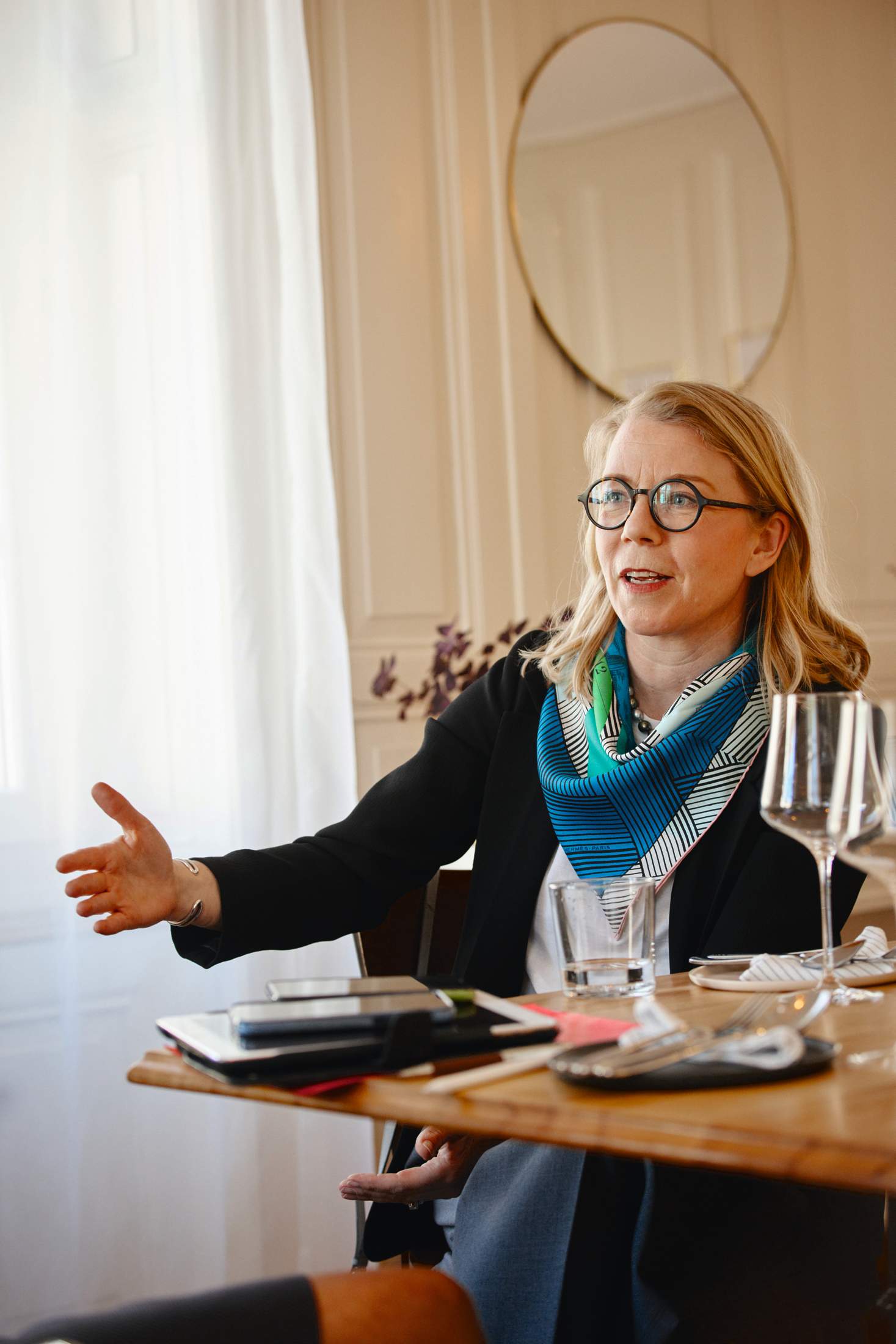
CHRISTIAN: One cultural challenge we’ve come up against, however, is that in certain parts of the world, it’s hard for women to go out to train in order to obtain the skills required for remote working. We are based in Switzerland but, working as a non-profit organisation, Powercoders trains women who have come from very traditional cultures to code. In such places, men are usually perceived as the only breadwinners. Recently an Afghan couple applied for the training scheme and it was obvious that the woman was better suited to the role. We had to convince her husband to look after the children. He accepted but only based on practicality.
SUBA: That’s a reality we’ve been working with at the Drosos Foundation – and it’s worth saying of course, that men are always a big part of the solution. Actually, in the MENA region, Jordan has the highest rate of women out of the workforce. There, if a woman gets married, usually it’s the husband who decides whether she will work.
CHRISTIAN: It’s interesting to look at how those expectations vary. In some cultures, men will be laughed at by other men if their wife works, whereas people in Switzerland pat me on the back if I take on the childcare.
ANNA: Let’s not forget how important the legal set-up of a country is in that regard. I’m from Sweden and people often assume that the country is more progressive in terms of gender roles because the men are different. There’s an assumption that they’re “better guys” who are more willing to help out in the home. But actually it all comes down to the political set-up and the ability to take paid time off work for women and men. In Sweden, paternity leave was legislated in 1974 but nobody took it. Breaking the mould of traditional gender roles is hard even in a supposedly progressive country like Sweden. What changed is that, a few decades later, the total amount of leave a family was allowed to take increased. But if you didn’t share at least part of it, you would get less overall leave as a couple. That was a game changer and many more men took part of the parental leave.
SUBA: It’s always about the system.
CHRISTIAN: I agree. Legislation has real momentum-changing potential.
The way forward Getting women back into work is a complex challenge without a simple solution. Modern recruitment methods are stacked against candidates who take a break.
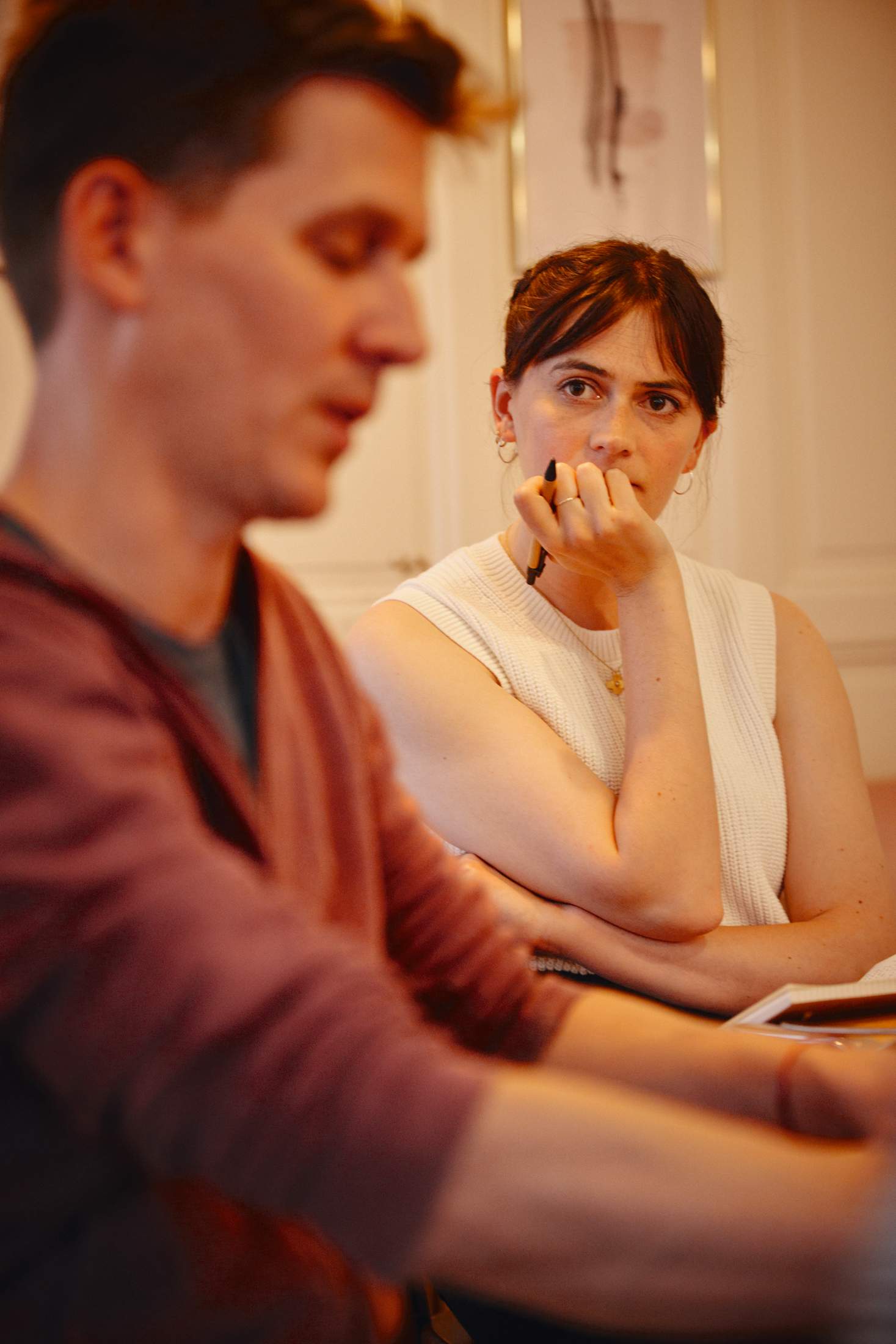

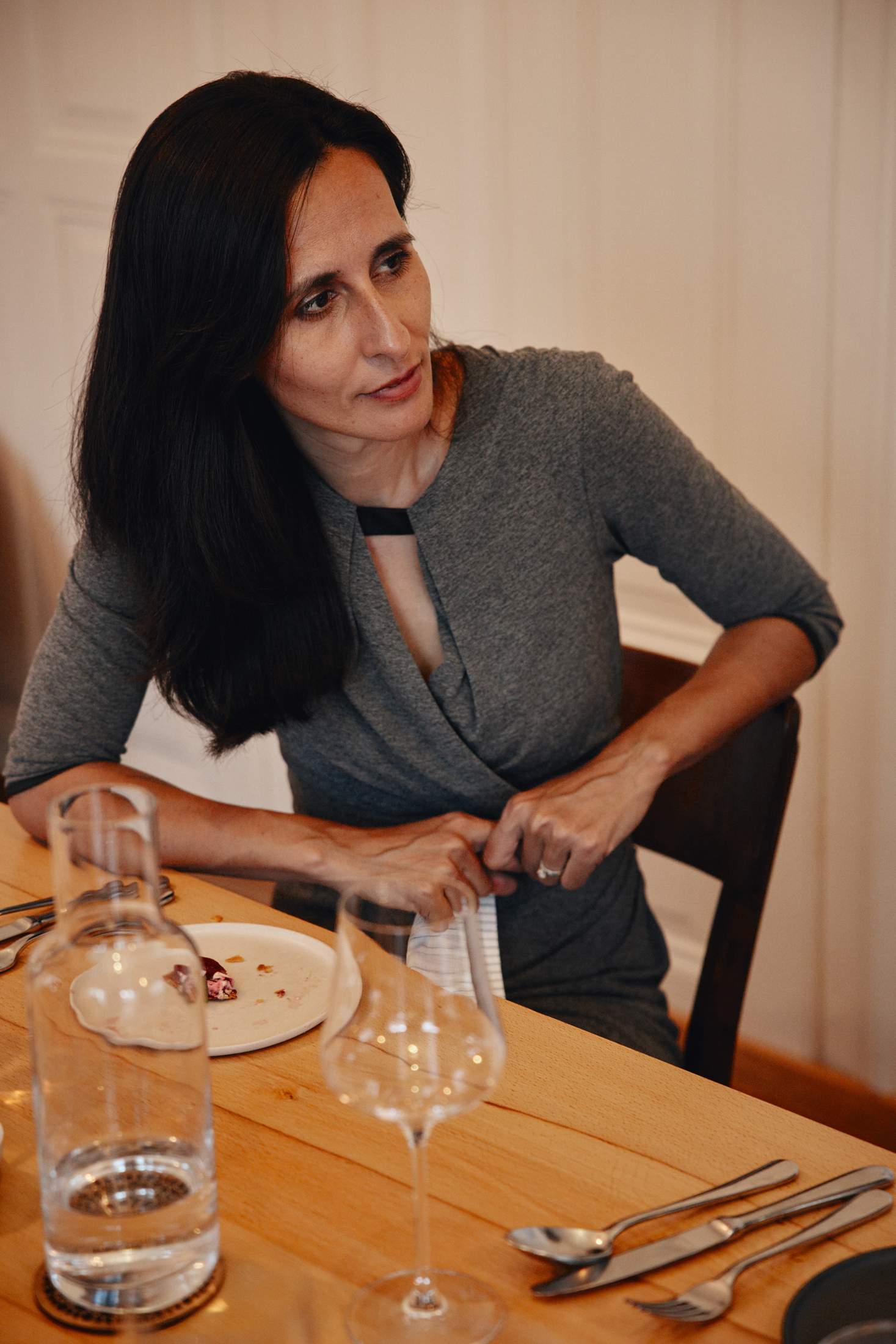
CYNTHIA: And what about women who would like to be in employment but struggle to get a foothold due to career breaks. How can they be helped?
OMAR: Today’s recruitment methods favor those with traditional work experience, and discount experiences like motherhood. If we adapted recruitment methods to value and assess talent based on skills, parenthood could be not a gap on a CV, but a skills-development experience valued by employers. You need experience to get experience – and you’re not able to get through an automated system. That’s why we need face-to-face interactions, for empathy.
CHRISTIAN: To be honest, I don’t think it’s just the [digitally] automated thing. We as humans have the potential to be very automated. What we see again and again at recruitment centres is that you don’t get diversity. There’s so much bias in society as a whole.
NAZRENE: The other day a colleague shared with me an article about recruitment without CVs.
ANNA: That sounds like a utopian future but how would employers find the time to speak to every applicant?
CHRISTIAN: It’s the future, seriously. The CV is just a selection tool. We can find better selection tools. For example, I’m recruiting right now in Cameroon. They don’t have a culture of writing CVs, so we have someone there who talks to people. It works better for both parties.
OMAR: That’s where skills come into the equation. If you’re not able to hire based on experience or the companies that you’re associated with, it comes down to the skills you’ve acquired.
CYNTHIA: I’m really interested in the idea of cataloguing the skills involved in lived experience. Something like doing the shopping for the week. That involves budgeting, decision-making, time management.
OMAR: A big thing is recognising those skills. You might be a mother but you’re not realising that you’re acquiring and demonstrating those skills.
KITRHONA: It’s interesting how value is defined, captured and communicated.
NAZRENE: And a CV doesn’t always give you the full picture.
ANNA: But a CV rules out 60 per cent of the people who I don’t have time to see.
CHRISTIAN: True. But there are better tools to do the same thing.
CYNTHIA: That’s exactly the kind of lateral thinking we’re looking at with the Innovation Foundation: identifying these “better tools” and seeing how they can form practical solutions to help women re-enter the world of work. We’ve touched on some really intriguing themes so far and you’ve set a very high bar for the rest of the dinners in the series. Let’s see how the topic unfolds and what we learn by the end of the series.


